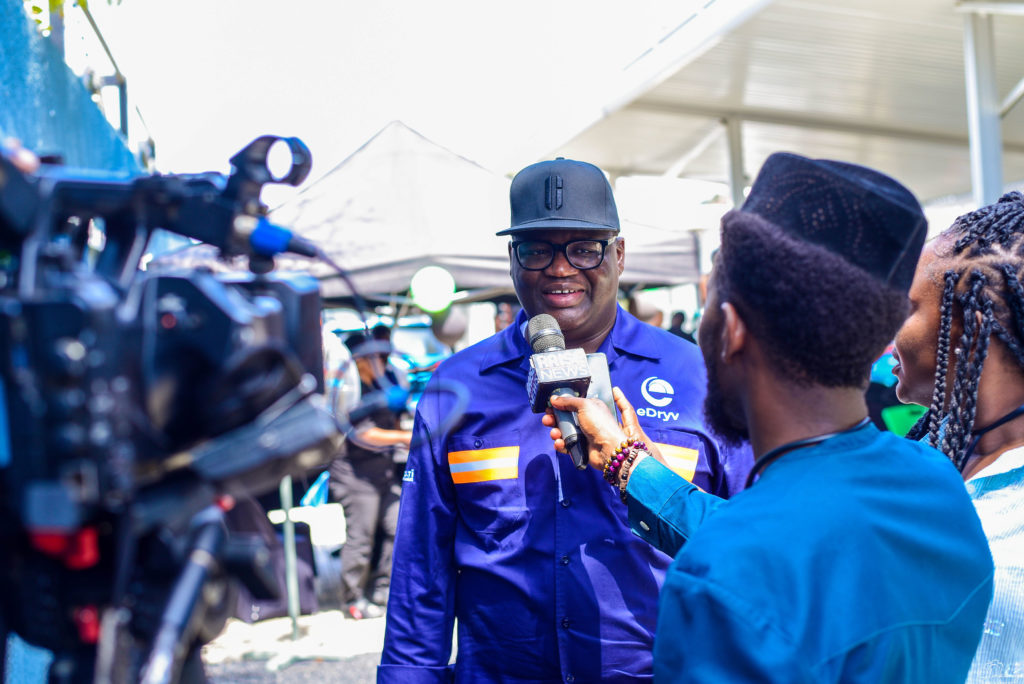
In a bold move set to revolutionize Nigeria’s transportation landscape, Foltï Technologies Limited has launched eDryv, an innovative ride-hailing service powered by electric vehicles (EVs) and 95% green energy.
The service will begin accepting bookings on Sunday, April 13, 2025, starting in the Lagos Island area. The groundbreaking project aims to provide affordable, safe, and environmentally friendly transport while addressing Nigeria’s power and pollution challenges.
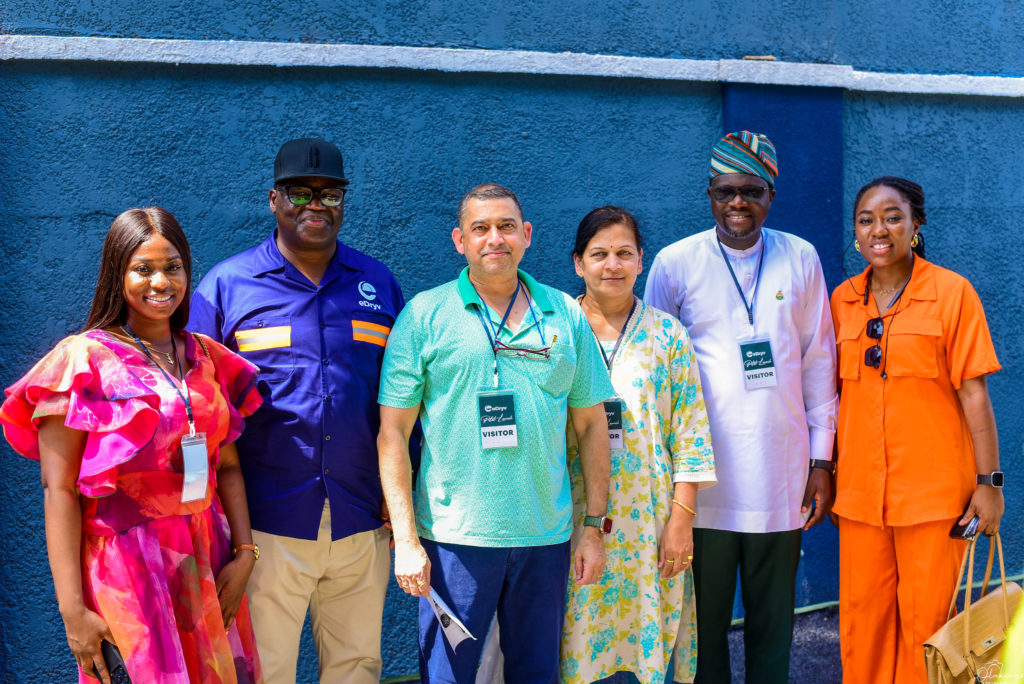
Speaking during the launch, Principal and Founder of Foltï Technologies, Ahmad Damcida described eDryv as a “transport-as-a-service” venture designed to offer a sustainable alternative to Nigeria’s conventional transport systems. The service utilizes electric vehicles charged with electricity generated in-house from solar panels and battery storage systems.
“There’s a common belief that Nigeria lacks electricity. That’s why we took matters into our own hands. We generate and manage our own power — 95% of it from green sources — to charge our EVs,” Damcida said. “Everything you see was designed and installed locally.”
eDryv stands out not only for its green energy sourcing but also for its cost-effectiveness. While the current market rate for transport hovers around ₦320 per kilometer, eDryv offers rides at a competitive discount. Riders also earn Green Coins, a reward system that further reduces their fare for each kilometer traveled in a zero-emission vehicle.
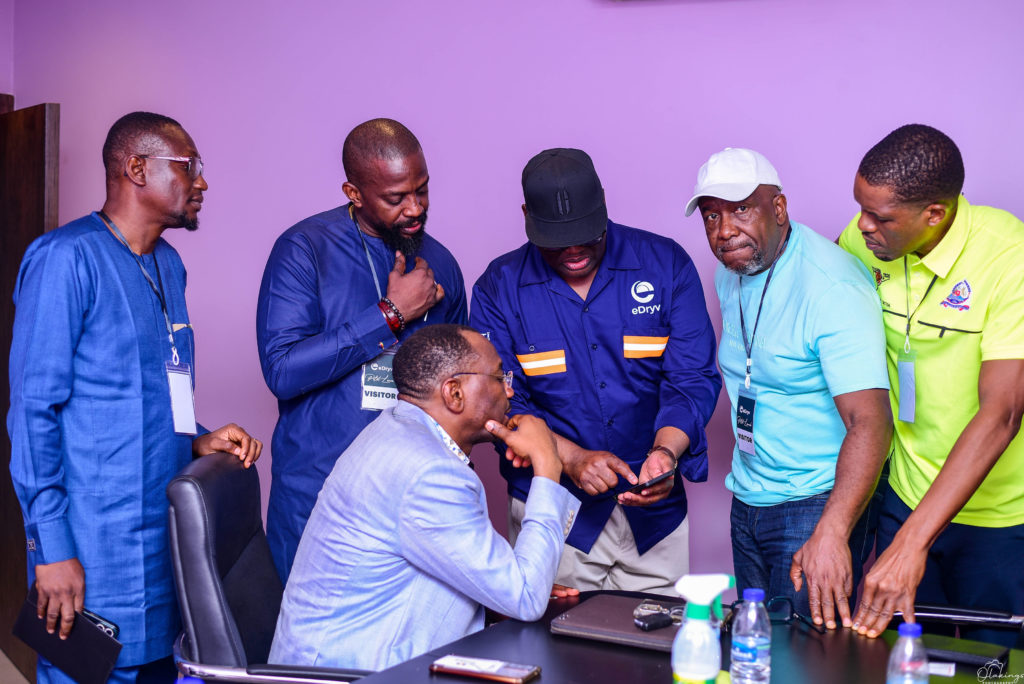
“We want to reward commuters for choosing cleaner transport,” said Damcida. “With each ride, you’re reducing carbon emissions and earning rewards that bring down your fare.” Having spent nearly two decades in the oil and gas industry, Damcida and his co-founders say their decision to transition into renewables is intentional and purpose-driven.
“We understand the oil and gas business deeply, but we also recognize our responsibility to decarbonize the environment,” he explained. “Electric vehicles are cheaper to maintain, eco-friendly, and a more viable solution for Africa, where many cars are in their second or third life cycles.”
In addition to providing the service, Foltï Technologies is committed to sustainability through recycling. After each vehicle’s 7-8 year life cycle, the company plans to recycle its components, including the batteries, instead of reselling aging vehicles to consumers. While others have made attempts in the electric transport space, Damcida insists eDryv is Nigeria’s first truly sustainable, integrated EV transport solution.
“This is the first of its kind,” he said. “We have built a model that’s scalable and self-sufficient. We have an Africa-wide vision, and this is just the beginning.”
The company plans to expand eDryv to other cities in the coming months and has already initiated the process of setting up an EV assembly plant in Abeokuta, Ogun State. Backed by the National Automotive Design and Development Council (NADDC), the plant is expected to begin assembling electric vehicles locally by 2026 or 2027.
According to Damcida, selling the EVs outright at this stage would be cost-prohibitive for most Nigerians. “These cars cost around ₦44 million each. That’s not realistic for the average buyer. So we decided to offer the vehicles as a service instead, which eliminates the burden of ownership,” he said.
The President of the Electric Mobility Promoters Association of Nigeria (EMPAN), Engr Dapo Adeshina lauded the eDryv initiative, calling it a revolutionary step toward sustainable transport and job creation. Speaking on the sideline, Adeshina called for more government support to scale electric mobility (e-mobility) across the country.
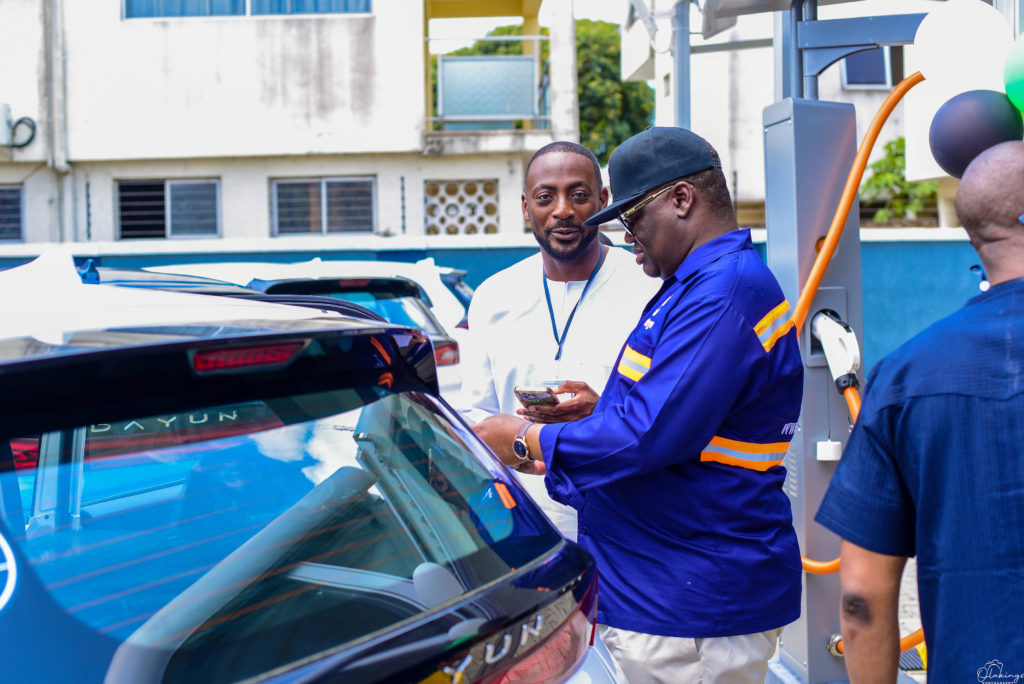
Formed in October 2024 and officially registered by January 2025, EMPAN represents stakeholders across Nigeria’s growing e-mobility ecosystem. According to him, eDryv’s model is a welcome innovation in Nigeria’s transport space, offering a suite of environmentally friendly services, from electric ride-hailing, leasing, and rentals to infrastructure like charging stations and solar-powered systems.
“E-mobility is more than just electric cars—it’s an entire ecosystem that includes two-wheelers like bikes, three-wheelers (keke), and four-wheelers used both commercially and privately,” he explained. “eDryv is tapping into this, providing users the opportunity to ride electric vehicles using a mobile app similar to Uber and Bolt, but powered by clean energy.”The EMPAN president highlighted the environmental benefits of electric vehicles (EVs), noting their potential to reduce greenhouse gas emissions and air pollution. This is particularly important for Nigeria’s push toward its Nationally Determined Contributions (NDCs) and achieving net-zero emissions by 2050.
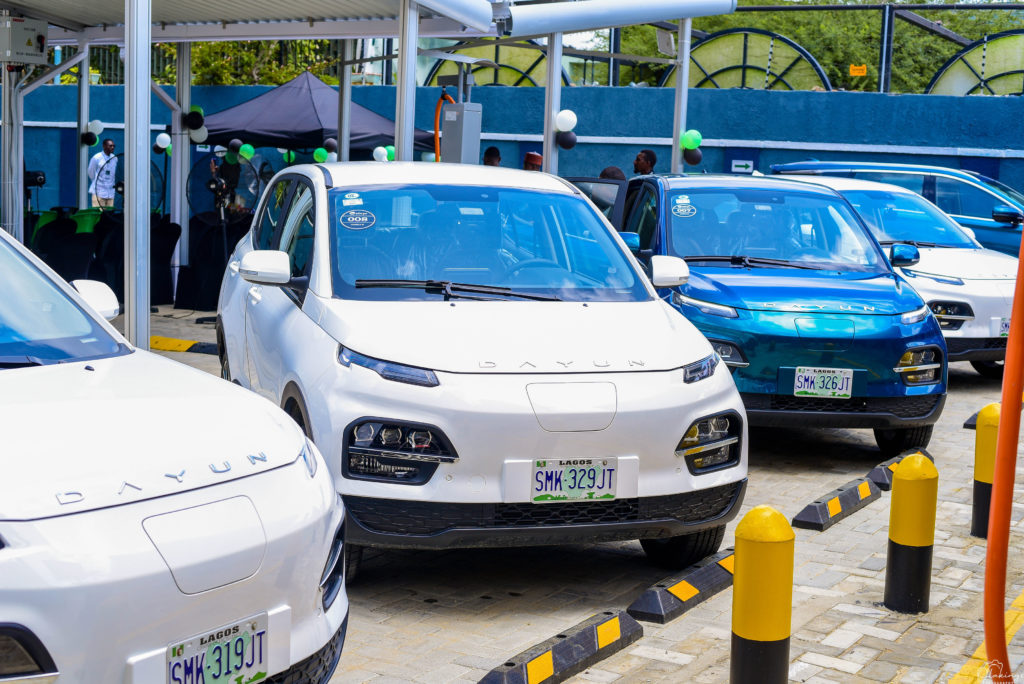
“Transportation contributes about 22 to 26 percent of carbon emissions. By shifting to EVs, we are removing a huge chunk of this,” he said. “This has direct health benefits too—cutting down on respiratory illnesses, reducing noise pollution, and improving life expectancy.”
EDryv also incorporates user incentives like “Green Coins,” which reward customers based on mileage and can be used as discounts for future rides. The platform boasts telematic features—technologies that combine telecommunications and informatics—to monitor driver and rider behavior, optimize vehicle performance, and improve user experience.
The eDryv facility runs largely on solar energy, with a 460 kWh battery storage system powered by rooftop solar panels. “They require just one hour of public electricity a day,” the EMPAN head noted. “It’s a massive investment and a model of energy efficiency”. The hub includes an eight-port charging station with 30kW capacity each and adaptable charging heads to accommodate different EV models—helping alleviate range anxiety for users.
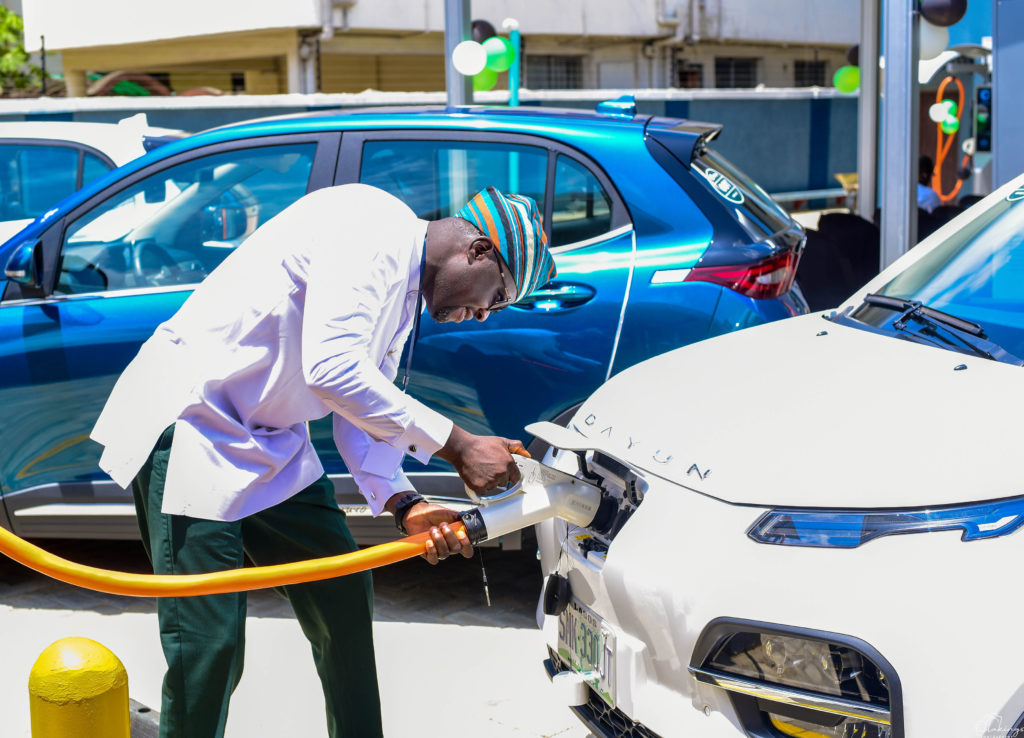
Beyond sustainability, EMPAN believes e-mobility presents vast economic potential. From assembling EVs locally to battery swap technologies and ride-hailing services, the ecosystem could generate significant employment and encourage tech transfer.
“The sector is opening doors to training, innovation, and entrepreneurship,” the president said. “More people are learning telematics, developing mobility apps, and setting up assembly plants.”
However, he noted that affordability remains a challenge. Although EV ride-hailing fares are currently lower than traditional fuel-based alternatives—such as a N12,000 EV trip from Victoria Island to the airport compared to N18,000 with Bolt—the upfront cost of purchasing EVs is still high.
EMPAN called on the federal government to further support the industry by eliminating import duties on EVs, streamlining port clearance processes, and simplifying documentation. “The delay in clearing imported EVs adds unnecessary costs and discourages investors,” he lamented, citing a personal experience where imported EVs took four months to move from Lagos to Abuja. He also urged the banking and finance sector to provide tailored loans and credit for EV drivers and startups in the space. “Drivers want to own these cars. With the right financing structure, they can,” he said, naming Sterling Bank as one of the few institutions showing promise in EV financing.
In the debate between Electric Vehicles and Compressed Natural Gas (CNG), EMPAN’s president maintained a firm stance. “I’m an advocate of EVs. While CNG is cleaner than petrol and abundant in Nigeria, EVs offer near-zero emissions, better energy efficiency, and enhanced safety.” He dismissed safety concerns around EVs, assuring the public that the batteries are encased and waterproof. “Just like a phone can survive water spills, so can an EV. These are global-standard technologies.”
With government backing, better financing options, and more awareness, EMPAN believes Nigeria is well-positioned to lead the EV revolution in Africa. “This is not just about transportation—it’s about a better quality of life, cleaner air, more jobs, and a sustainable future,” the president concluded.
Head of Operations and Maintenance at eDryv, Emmanuel Anagbe revealed that the company currently operates two models of electric vehicles: the Dayun SUV and the Dayun MPV. According to him, the Dayun MPV boasts a travel range of 450 kilometers and is powered by a 72.27 kilowatt-hour battery. The Dayun SUV, on the other hand, has a travel range of approximately 330 kilometers, powered by a 36.6 kilowatt-hour battery.
“Our services are built around the concept of transportation as a service,” he explained. “This includes ride-hailing, vehicle rentals, and corporate services. Organizations can either rent our EVs or integrate them into their corporate transportation needs.”
eDryv’s operations are currently focused on Lagos Island and the Mainland, where it is running its pilot phase to gather feedback, test infrastructure, and better understand the local market.
Anagbe described the pilot phase as crucial in introducing electric vehicle technology to the Nigerian transportation ecosystem. “This is our first foray into the EV space, and electric mobility is still a new concept in our region,” he said. “We are using the pilot to understand terrain, engage the public, and fine-tune our service delivery.”
Following the pilot phase, eDryv aims to launch its full commercial operations with over 231 electric vehicles and three charging stations spread across Lagos. At present, the company has a fully functional charging hub at its head office in Agungi, Victoria Island, and plans are underway for additional stations on the Mainland (along Farm Road) and between Marina and Ajapa.

Emmanuel confirmed that while the vehicles are not for sale, individuals and organizations can access them through eDrive’s transportation services. “We are not selling the vehicles,” he emphasized. “This is strictly transportation as a service.” As for expansion, the company projects that within six months to a year, it will have established a charging facility on the Lagos Mainland and expanded its reach further into the city. eDryv’s entry into the Lagos transportation scene marks a significant step toward sustainable urban mobility, as Nigeria explores alternatives to fossil fuel-driven transport in the face of rising fuel costs and environmental concerns.
With a forward-looking mission to redefine mobility in Africa, Foltï Technologies’ eDryv could well be a turning point for the continent’s transition to clean, accessible transportation.



















